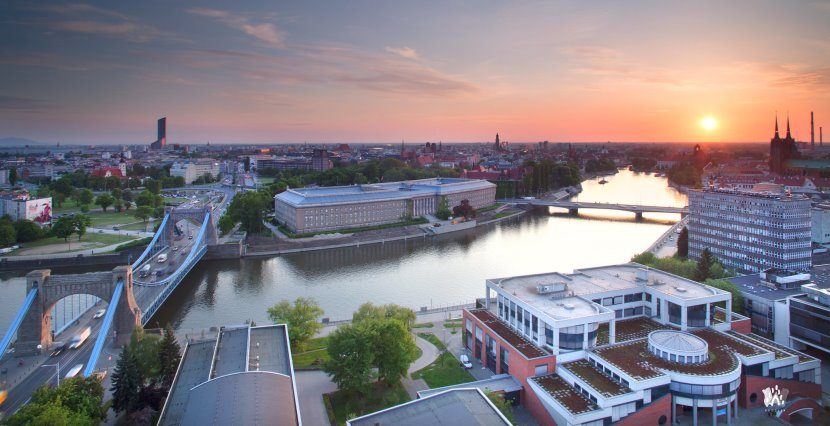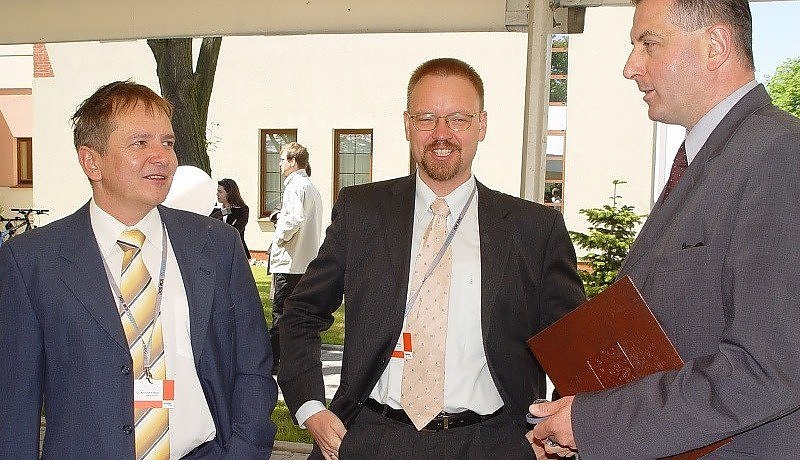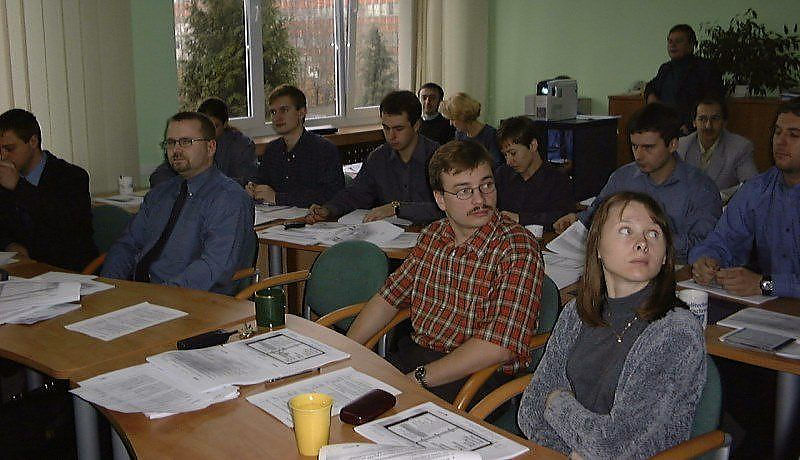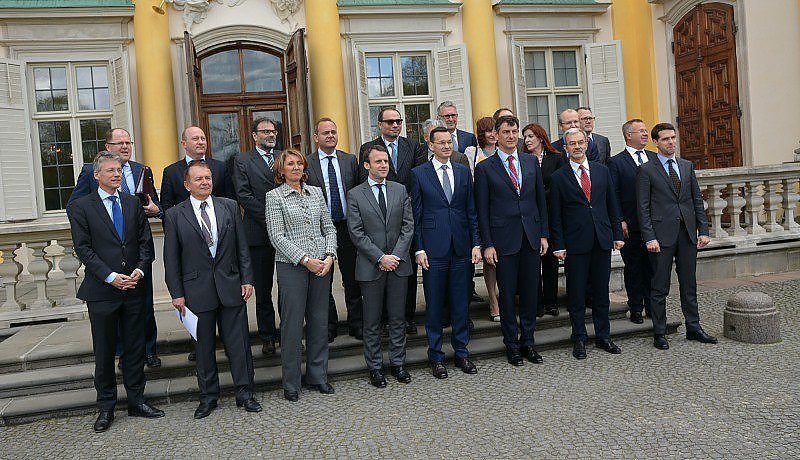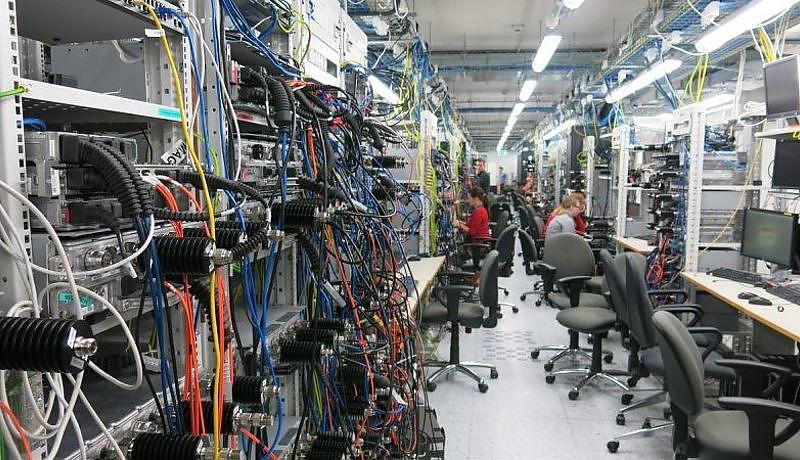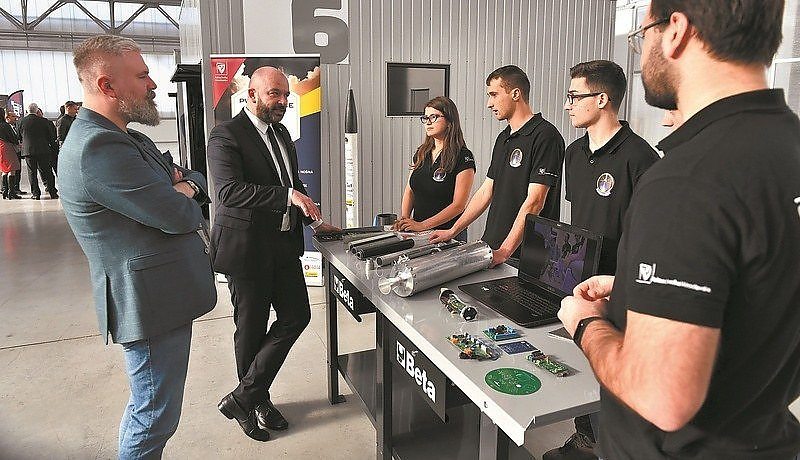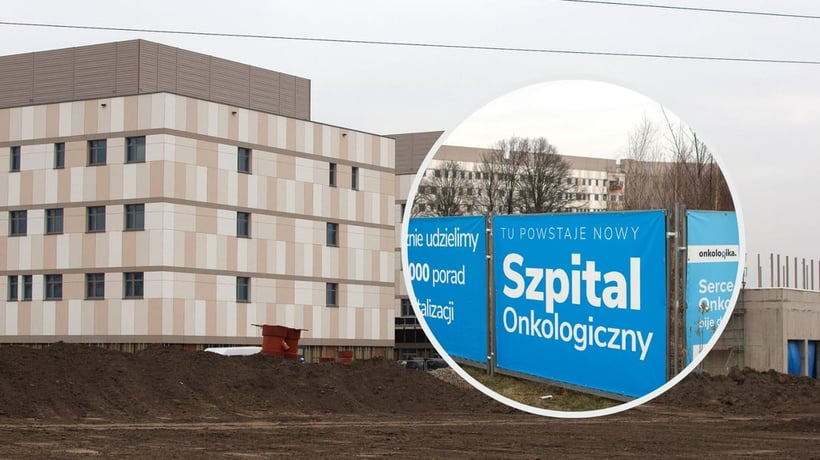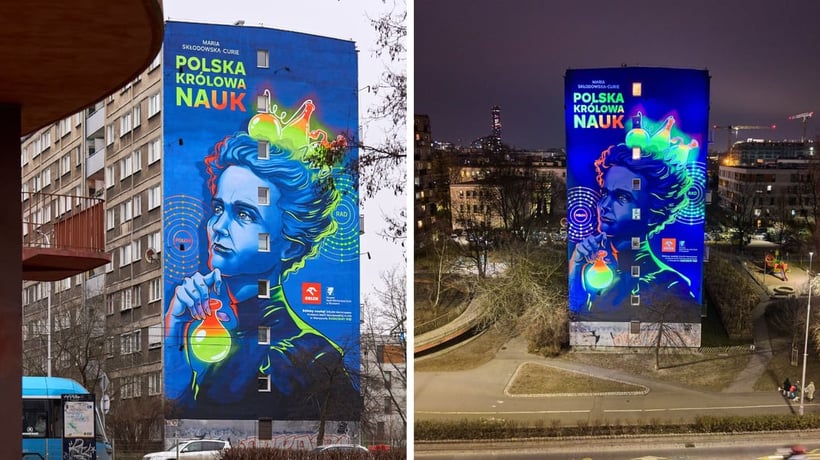Chronologically, the first big company that started operating in the IT industry in Wroclaw was Volvo – in 1993, it opened Volvo Group IT with specialists in finance and IT services. That was one of the first world IT competence centres in Poland. But the development of the Wroclaw “Silicon Valley” dates back to 2000, when Siemens SDC appeared in Wroclaw.
‘It was one of the biggest investments that has undoubtedly turned the city into one of the leaders in the development of the modern business service sector in Poland. Today Wroclaw competes for investment projects with a number of famous centres, including Barcelona, Zurich or Manchester, and Europe's biggest electric car lithium battery factory is under construction in our agglomeration,’ stresses Jacek Sutryk, Mayor of Wroclaw.
Recalling the beginnings of Siemens SDC, Jakub Mazur, the vice-mayor of our city, stresses that, having graduated from studies a short time earlier, he was starting his career in Wroclaw at that time.
‘Those were undoubtedly breakthrough times. The things that happened in those days and the work undertaken by the then city authorities and Mayor Rafał Dutkiewicz still produce results. Wroclaw is a favourite place for global corporations to create competence centres dedicated to artificial intelligence, 5G or Smart City solutions,’ enumerates the vice-mayor.
Siemens SDC starts in Elwro's buildings
The Siemens Software Development Center (SDM) was established in the city by Krzysztof Kuliński, who grew up in Wroclaw, but has lived in Vienna since 1981. He was one of the foreigners holding top positions in Siemens. On his initiative, the Munich giant invested 1 million EUR in Wroclaw, and SDC started operating in the Elwro’s former buildings at ul. Ostrowskiego on 1st October 2000. SDC specialised in preparing software for mobile telephony.
From the left: Krzysztof Kuliński, the former head of Siemens SDC in Wroclaw; Andreas Hoffmann, the former CEO of Siemens Polska; and Rafał Dutkiewicz, Mayor of Wroclaw in 2002-2018, source: private archive
‘In June 2000, we placed advertisements about jobs in the Wroclaw division of Siemens at the Wroclaw University of Technology. We wanted to employ 20 persons, and we had 800 CVs after a week. The dynamics of growth was so big that we employed around 1,000 persons during the first five years, that is, until 2005, and Siemens invested almost 30 million EUR in the Wroclaw SDC,’ says Krzysztof Kuliński, the former head of Siemens SDC in Wroclaw and a laureate of ‘30 Creative Personalities of Wroclaw 2016’ – a ranking held by www.wroclaw.pl.
It is worth noting that Siemens’s centre was an active partner of the Wroclaw University of Technology and one of the founders of the ICT Cluster in Wroclaw.
An investment that has changed Wroclaw
Siemens’s centre initiated the process of creating big and small companies specialising in information and communication technology (ICT) in Wroclaw. In 2005, the corporation changed its policy and started to downsize its departments.
‘Consequently, I parted with Siemens in 2008, when the company merged with Nokia and decided to withdraw from the telecommunications sector,’ stresses Krzysztof Kuliński, adding that Siemens’s decision was very good for Wroclaw. ‘When the Munich giant sold its departments in Wroclaw, companies such as Nokia, Tieto, Gigaset, Atos and REC Global emerged. A new centre of BenQ and research centres of TietoEnator and Opera Software were established,’ he enumerates.
One of the first employees of Siemens SDC, source: private archive
All of these entities became new workplaces for people whom Krzysztof Kuliński had employed in the Wroclaw division of Siemens a few years earlier. Kuliński's co-operators stress that he has a good hand for young engineers. Those who started working under his supervision made a career in many international companies and managed the biggest IT companies in Wroclaw and other parts of Poland. For this reason, he is considered to be the patron of success of the IT sector in Wroclaw.
‘He is a man with ideas and passion and knows how pass it all on to others. It is important that he can share his knowledge and experience like nobody else,’ stresses Bartłomiej Andrusiewicz, one of the first employees of Siemens SDC and the current CEO of EUVIC Solutions.
Krzysztof Kuliński (second left, in the first row) at a meeting of Polish entrepreneurs with ministers of industry of EU countries, 2016, source: private archive
After leaving Siemens, Kuliński continued to create the IT industry in Wroclaw: he founded REC Global, which became one of the fastest developing R&D companies in Central Europe. In 2009, REC Global bought a development centre of the German company Cinterion Wireless, a leader on the wireless solution market.
In 2016, REC Global, a Wroclaw company providing software engineering services in more than 20 European countries and the USA, announced a new chapter in its history. The company was incorporated into the structures of Global Logic – an American leader on the global software market.
Kuliński helps Wroclaw
In the 2000s, Kuliński helped Wroclaw bring companies from the IT sector to the city. He did that together with representatives of the city, who conducted an information campaign in Berlin, Munich, Vienna, etc. At meetings with potential investors, civil servants talked about the advantages of Wroclaw, and Kuliński gave useful tips on doing business in Wroclaw. In recognition of these and many other contributions, Rafał Dutkiewicz granted the Wroclaw Mayor Award to him in 2008.
‘Siemens’s investment, which was connected very strongly with Krzysztof Kuliński, sparked off many things in Wroclaw, and it was an important beginning,’ stresses Rafał Dutkiewicz, Mayor of Wroclaw in 2002-2018.
The story of Krzysztof Kuliński and his impact on the development of the IT industry in Wroclaw will be described in a book that should be released at the beginning of 2021.
‘During the last 20 years, Wroclaw has gone up in international business rankings. This is largely due to the Wroclaw Agglomeration Development Agency, which effectively supports the creation of new workplaces,’ stresses Krzysztof Kuliński.
Source: Wroclaw IT sector. Report
IT and R&D centres come into being
As a result of the emergence of new workplaces and investments, the unemployment rate in Wroclaw has dropped from over 13% to 1.7% within less than two decades. The per capita GDP has increased by 80%, and the average remuneration is currently 2.5 times higher than in 2000.
Dariusz Ostrowski, the president of the Wroclaw Agglomeration Development Agency (ARAW) in 2007-2017, stresses that both the structure of direct foreign investments and their decisive factors have changed during the last two decades.
‘In the late 1990s and the early 2000s, the Wroclaw agglomeration was attractive mainly for production companies for which financial efficiency, access to human resources and a public aid system were issues of key importance. At that time, the dynamic development of the modern business service sector was still ahead of us. Today, production companies are accompanied more often by investments in R&D centres and shared service centres,’ enumerates Dariusz Ostrowski.
One of the Nokia’s most modern technological labs around the world is in Wroclaw, photo: Jarek Ratajczak
In 2020, the list of IT/R&D centres in Wroclaw consisted of 110 companies. Altogether, the IT industry employed over 36,000 persons, and the modern business service sector had almost 52,000 employees (51,900 according to the ABSL Report 2020). They work for such international giants as IBM, Accenture, Capgemini, Dolby, Opera Software, Volvo IT, 3M, Nokia or Global Logic.
In this context, it is worth adding that there are more than 15,000 students in IT and related fields of study in Wroclaw.
The Mayor of Wroclaw Jacek Sutryk during the inauguration of the Academic Box in the Wroclaw Technological Park. It is a place for students and an opportunity to establish co-operation with big enterprises. Source: Wroclaw City Office
ARAW: 15 years and over 200 companies
This year marks the 15th anniversary of the existence of the Wroclaw Agglomeration Development Agency (ARAW). During that time, it has managed to attract over 200 companies, including (apart from the aforementioned ones) BASF, Google, Bosch, UBS, Volvo Buses, BSH, Credit Suisse and LG. The companies that ARAW helped in the Wroclaw agglomeration employ around 100,000 persons. Almost half of them are employees of the IT industry.
‘According to the Report for the Wroclaw IT sector, 95 per cent of companies from this industry have ambitious development plans, and 84 per cent want to expand their teams. On the other hand, the biggest challenge for employers is to acquire experienced and highly specialised experts,’ adds Magdalena Okulowska, the president of the Wroclaw Agglomeration Development Agency.
